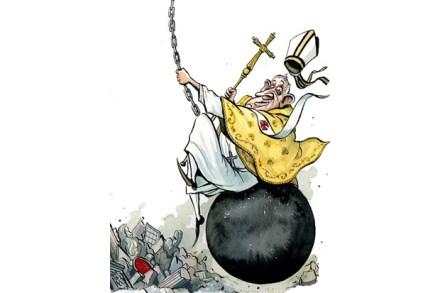Podcast: civil war in the Catholic church
Are Pope Francis’ reforms and pronouncements risking a civil war within the Catholic church? On the latest View from 22 podcast, Damian Thompson and Fraser Nelson discuss this week’s Spectator cover feature on the Pope vs. the church. How concerned should Catholics be about the Pope’s wild statements? Is the church pining for the days of Pope Benedict? Is the Catholic church on track to lose its unity? And how split is the Synod over Pope Francis? Isabel Hardman and Fraser Nelson also discuss whether MPs will ever vote to bomb Syria. Does David Cameron regret losing the Commons vote in 2013 and does he remain determined to put it right? At which point might the Prime Minister be able to convince





















